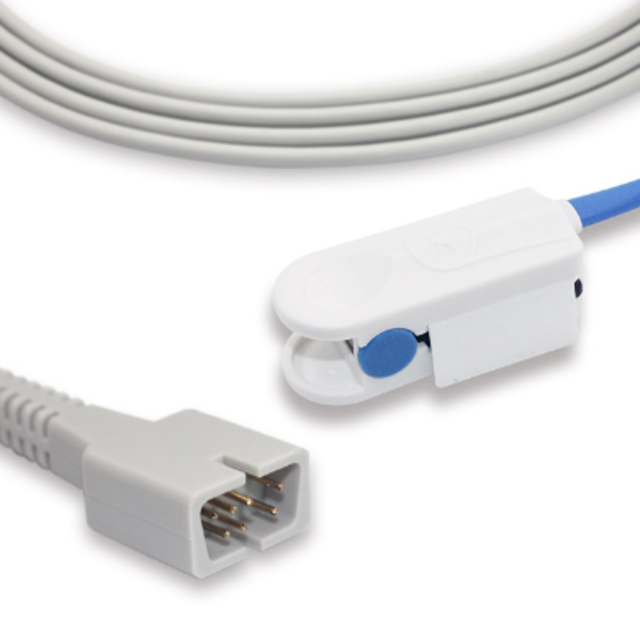News
Site Editor
 Site
https://medke.usa18.wondercdn.com/uploads/image/63d7b0e4f285a.png
This small yet powerful device plays a crucial role in ensuring the well-being of animals, from household pets to wildlife, and contributes to the progress of veterinary science and animal research.
Site
https://medke.usa18.wondercdn.com/uploads/image/63d7b0e4f285a.png
This small yet powerful device plays a crucial role in ensuring the well-being of animals, from household pets to wildlife, and contributes to the progress of veterinary science and animal research.
The Role of spO2 Probes in Advancing Veterinary Medicine and Animal Research
Views: 404
Author: Site Editor
Publish Time: 2023-09-12
Origin: Site
In recent years, the field of veterinary medicine and animal research has seen significant advancements in technology and tools. One such tool that has revolutionized the way veterinarians and researchers monitor the health of animals is the spO2 probe. This small yet powerful device plays a crucial role in ensuring the well-being of animals, from household pets to wildlife, and contributes to the progress of veterinary science and animal research.
Understanding spO2 Probes
spO2 probes, or pulse oximetry probes, are non-invasive sensors used to measure the oxygen saturation levels in the blood. This vital parameter provides critical insights into an animal's respiratory and circulatory health. The probe typically consists of a sensor, which is attached to the animal's skin or mucous membrane, and a cable that connects to a monitor.
Applications in Veterinary Medicine
Anesthesia Monitoring: During surgical procedures, veterinarians use spO2 probes to continuously monitor an animal's oxygen levels. This real-time data helps ensure the animal is receiving enough oxygen while under anesthesia, reducing the risk of complications.
Emergency Care: In critical care situations, such as trauma or respiratory distress, spO2 probes are indispensable. They provide immediate feedback on oxygen saturation, enabling veterinarians to make rapid and informed decisions for treatment.
Chronic Disease Management: Animals with chronic respiratory conditions, like asthma or heart disease, benefit from regular spO2 monitoring. Veterinarians can adjust treatment plans based on trends in oxygen saturation, improving the animal's quality of life.
Contributions to Animal Research
Wildlife Conservation: Researchers studying wildlife use spO2 probes to monitor the health of animals in their natural habitats. This non-invasive method allows scientists to gather valuable data without causing undue stress to the animals.
Pharmaceutical Development: spO2 probes play a crucial role in preclinical drug testing on animals. Researchers can assess how new medications impact an animal's oxygen levels, ensuring safety and efficacy before human trials.
Respiratory Studies: Animals are often used in studies related to human respiratory conditions. spO2 probes help researchers measure the effects of treatments or environmental factors on an animal's respiratory health.
Benefits of spO2 Probes
Non-Invasive: spO2 probes are painless and do not require drawing blood, making them ideal for use in animals of all sizes and species.
Real-Time Monitoring: Continuous monitoring provides immediate feedback, allowing for prompt intervention in case of oxygen saturation issues.
Accuracy: Advances in technology have made spO2 probes highly accurate, ensuring reliable measurements.
Versatility: These probes are adaptable for use in a wide range of animals, from dogs and cats to birds and reptiles.
Elevating Animal Care and Advancing Research with Medke's spO2 Probes
spO2 probes have become invaluable tools in both veterinary medicine and animal research. They enable veterinarians to provide better care to animals and offer researchers critical insights into animal physiology. As technology continues to advance, spO2 probes will likely play an even more significant role in advancing veterinary science and our understanding of animals in various environments.
Whether it's a beloved pet receiving anesthesia during surgery or a wild animal being monitored in its natural habitat, spO2 probes are making a difference in the lives of animals worldwide, contributing to their health, well-being, and the advancement of science.
For the latest in spO2 probe technology and applications in veterinary medicine and animal research, turn to leading innovators like us at Medke. We are committed to providing cutting-edge solutions that improve animal care and contribute to scientific knowledge.

